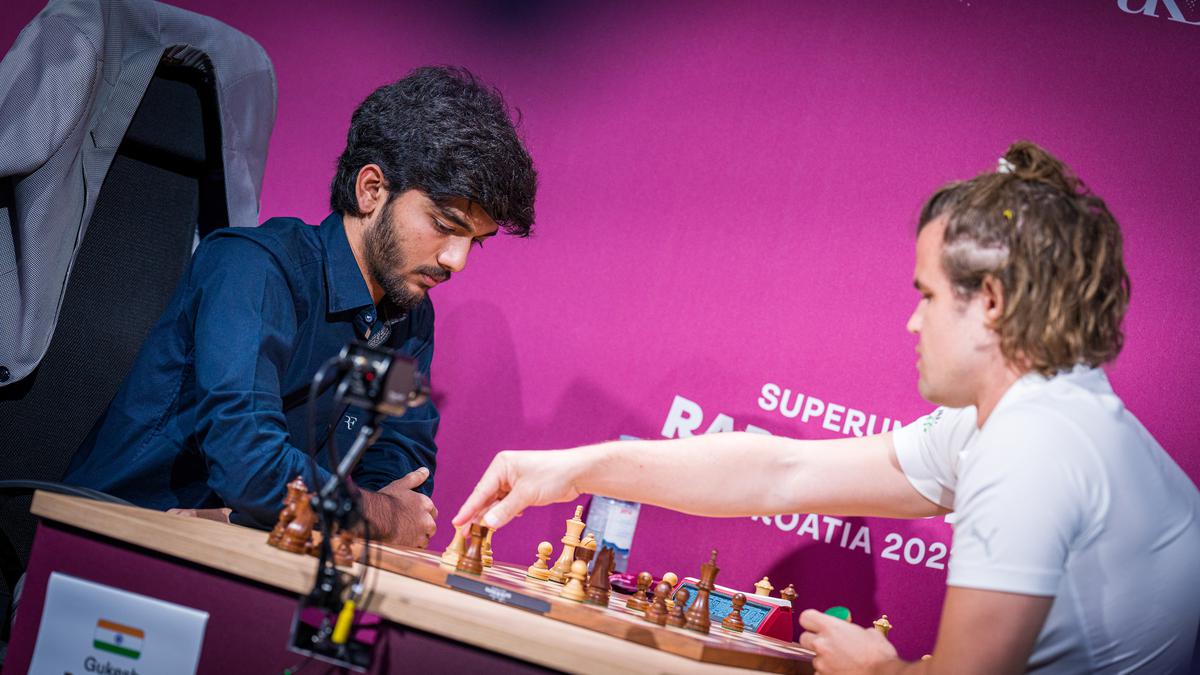Gukesh faces battle of wits against chess elite in Freestyle Challenge
Indian Grandmaster D. Gukesh will battle it out against elite players from across the world, including numero uno Magnus Carlsen, in the Weissenhaus Freestyle Chess G.O.A.T Challenge here.
This will be Gukesh’s first outing in an elite Freestyle Chess event that is more famously known as Fischer Random Chess or Chess 960.
Carlsen of Norway leads the eight-player field that also has Fabiano Caruana of the United States, reigning World Champion Ding Liren from China, Alireza Firouzja from France, Nodirbek Abdusattorov of Uzbekistan, Vincent Keymer of Germany and Armenian-turned-American Levon Aronian.
Gukesh came very close to winning the Tata Steel chess tournament recently but here the playing format will be completely different and it will be a challenge for him to adapt to the new format.
What really changes in Chess 960 format is that the initial position of the pieces is randomly selected.
There are 960 different formats to keep these pieces and hence the name.
Former world champion Bobby Fischer is known as a great supporter of the format and so it is also named after him.
There will be no deep opening theory as the format is new and the players have to show their playing skills more than their preparation.
The inception of this event happened during the Qatar Masters in 2023 when Jan Buettner, an entrepreneur from Hamburg, who is also a chess aficionado, met Carlsen.
Buettner told him about his interest in organising a world-class chess event in Weissenhaus – a private nature luxury resort that he owns.
Carlsen has made it quite clear that he has not been a big fan of classical chess. The long sequence of time control combined with players being well-prepared could have been playing in his mind then.
But Carlsen changed his stance after holding a discussion with Buettner about the idea of doing a Chess 960 event with classical time control.
Carlsen is said to have handpicked the players for this tournament himself which is a combination of youth and experience.
The format is also an interesting mix with a rapid round-robin to decide the eight places and then a Classical time control know-out event starting with the Quarterfinals.
In rapid format, the players will get 25 minutes each with a 10-second increment while in the classical segment, they will have 90 minutes for 40 moves and then 30 minutes for the entire game with a 30-second increment from move one.


